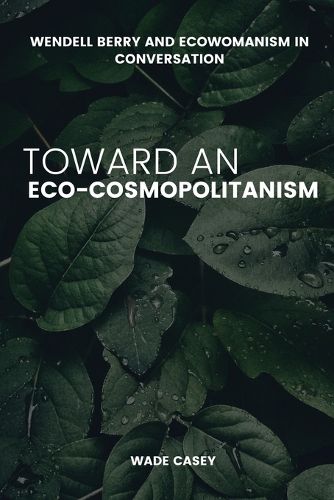Readings Newsletter
Become a Readings Member to make your shopping experience even easier.
Sign in or sign up for free!
You’re not far away from qualifying for FREE standard shipping within Australia
You’ve qualified for FREE standard shipping within Australia
The cart is loading…






This title is printed to order. This book may have been self-published. If so, we cannot guarantee the quality of the content. In the main most books will have gone through the editing process however some may not. We therefore suggest that you be aware of this before ordering this book. If in doubt check either the author or publisher’s details as we are unable to accept any returns unless they are faulty. Please contact us if you have any questions.
This project explores the social and ecological thought of Wendell Berry, Alice Walker, and bell hooks, highlighting the significant ways in which their distinctive concerns are compatible and contribute to developing ethical commitments that protect and advance both human and environmental well-being. Wendell Berry's agrarian philosophy emphasizes the interconnectedness of human communities and the natural world, advocating for sustainable agriculture and a harmonious relationship with the land. Alice Walker's work brings attention to the intersection of race, gender, and environmental justice, particularly through her concept of "womanism," which calls for a holistic approach to social and ecological healing. Similarly, bell hooks examines how systems of domination-racism, patriarchy, and capitalism-damage both human relationships and the environment, urging for a transformative love that restores balance and justice.
The project argues that the compatibility between these three thinkers' social and ecological concerns also resonates with major Christian theological perspectives, particularly those of Willie Jennings and Melanie Harris. Jennings's work challenges the colonial legacy of Christian thought and calls for a reimagined relationship with land and community, while Harris integrates African American spiritual traditions with environmental justice, emphasizing care for the earth as a sacred moral imperative. By bringing together the insights of Berry, Walker, and hooks with Jennings and Harris, this project casts a compelling vision for a world that bridges major divides of race, gender, religion, and even human and non-human life. It seeks to create a framework that fosters deeper care and justice for both human communities and the natural environment, recognizing that social and ecological well-being are fundamentally interconnected,
$9.00 standard shipping within Australia
FREE standard shipping within Australia for orders over $100.00
Express & International shipping calculated at checkout
This title is printed to order. This book may have been self-published. If so, we cannot guarantee the quality of the content. In the main most books will have gone through the editing process however some may not. We therefore suggest that you be aware of this before ordering this book. If in doubt check either the author or publisher’s details as we are unable to accept any returns unless they are faulty. Please contact us if you have any questions.
This project explores the social and ecological thought of Wendell Berry, Alice Walker, and bell hooks, highlighting the significant ways in which their distinctive concerns are compatible and contribute to developing ethical commitments that protect and advance both human and environmental well-being. Wendell Berry's agrarian philosophy emphasizes the interconnectedness of human communities and the natural world, advocating for sustainable agriculture and a harmonious relationship with the land. Alice Walker's work brings attention to the intersection of race, gender, and environmental justice, particularly through her concept of "womanism," which calls for a holistic approach to social and ecological healing. Similarly, bell hooks examines how systems of domination-racism, patriarchy, and capitalism-damage both human relationships and the environment, urging for a transformative love that restores balance and justice.
The project argues that the compatibility between these three thinkers' social and ecological concerns also resonates with major Christian theological perspectives, particularly those of Willie Jennings and Melanie Harris. Jennings's work challenges the colonial legacy of Christian thought and calls for a reimagined relationship with land and community, while Harris integrates African American spiritual traditions with environmental justice, emphasizing care for the earth as a sacred moral imperative. By bringing together the insights of Berry, Walker, and hooks with Jennings and Harris, this project casts a compelling vision for a world that bridges major divides of race, gender, religion, and even human and non-human life. It seeks to create a framework that fosters deeper care and justice for both human communities and the natural environment, recognizing that social and ecological well-being are fundamentally interconnected,